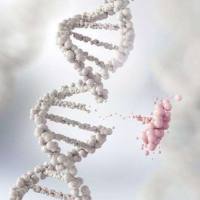Computational SNP Discovery in DNA Sequence Data
互联网
386
Both the quantity and the distribution of variations in DNA sequence are the product of fundamental biological forces: random genetic drift, demography, population history, recombination, spatial heterogeneity of mutation rates, and various forms of selection. In humans, single base-pair substitution-type sequence variations occur with a frequency of approx 1 in 1.3 kb when two arbitrary sequences are compared (1 ). This frequency increases with higher sample size (2 ), i.e., we expect to see, on average, more single nucleotide polymorphisms (SNPs) when a higher number of individual chromosomes are examined (3 ,4 ).







